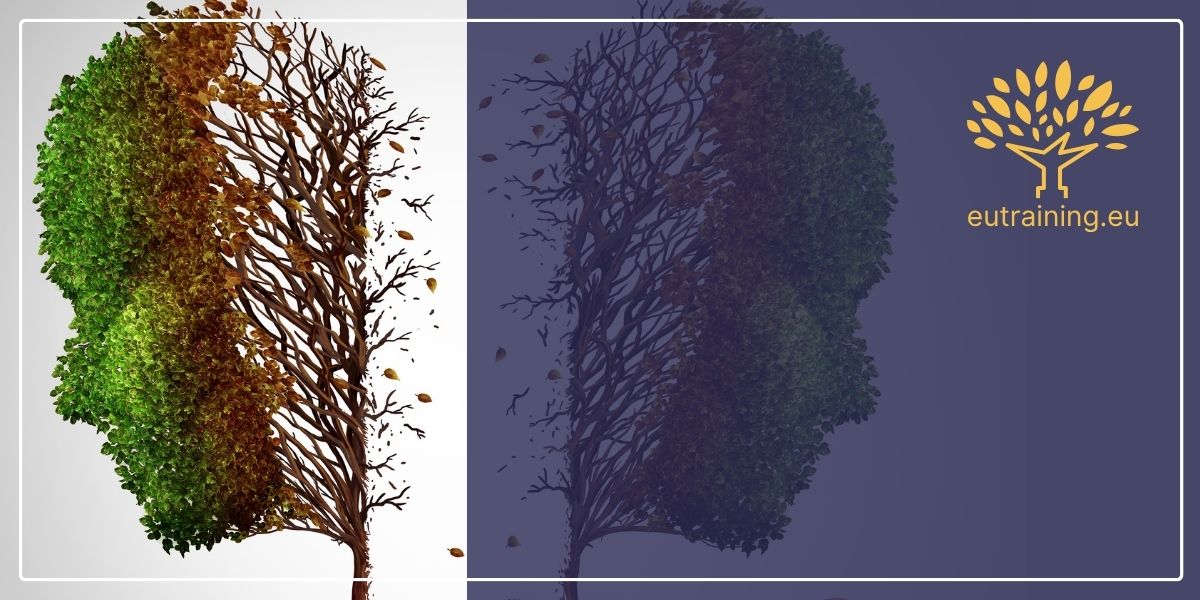
“The difference between winning and losing is most often not quitting.”
- Walt Disney
So, here you are. You just received the news that you didn’t make it to the Reserve List of that once-in-a-lifetime EPSO competition. Your first reaction is shock, disbelief and disappointment. Perhaps you are convinced that a serious mistake has been made.

TO APPEAL, OR NOT TO APPEAL…
…That is the question. The “General Rules Governing Open Competitions”, including what to do in case of complaints and (technical) issues at any stage of the procedures are extensively covered in the annexes of your Notice of Competition.
REQUESTS FOR REVIEW
You can request a review of any decision taken by the Selection Board or EPSO that establishes your results and/or determines whether you can proceed to the next stage of the competition or are excluded. Requests for review may be based on a material irregularity in the competition process and/or non-compliance by the Selection Board or EPSO with the Staff Regulations, the Notice of Competition, its annexes and/or case law.
Note that you are not allowed to challenge the validity of the Selection Board’s assessment of the quality of your performance in a test or the relevance of your qualifications and professional experience. This assessment is a value judgement made by the board and your disagreement with the board’s evaluation of your tests, experience and/or qualifications does not prove that it has made an error. Requests for review submitted on this basis will not lead to a positive outcome.
Requests received after the deadline will not be considered.
If the outcome is positive, you will be re-entered in the selection process at the stage at which you were excluded, regardless of how far the competition has progressed in the meantime.
ADMINISTRATIVE COMPLAINTS
As a candidate in an open competition, you have the right to address an administrative complaint to the Director of EPSO acting as the appointing authority.
You may submit a complaint against a decision, or lack thereof, that directly and immediately affects your legal status as a candidate only if the rules governing the selection procedure have clearly been infringed. The Director of EPSO cannot overturn a value judgement made by a Selection Board.
Requests received after the deadline will not be considered.
JUDICIAL APPEALS
As a candidate in an open competition, you have the right to submit a judicial appeal to the General Court, under Article 270 of the Treaty on the Functioning of the European Union and Article 91 of the Staff Regulations.
Note that appeals against decisions taken by EPSO rather than by the Selection Board will not be admissible before the General Court unless an administrative complaint under Article 90(2) of the Staff Regulations has first been made (see above). This is the case with the decisions concerning the general eligibility criteria, which are taken by EPSO not the Selection Board.
EUROPEAN OMBUDSMAN
All EU citizens and residents can make a complaint to the European Ombudsman.
Before you submit a complaint to the Ombudsman, you must first make the appropriate administrative approaches to the institutions and bodies concerned (see above).
Making a complaint to the Ombudsman does not extend the deadlines for lodging administrative complaints or judicial appeals.
From the above, I think, it is clear that your chances of gaining cause are pretty dim. Unless you can prove a material irregularity in the competition process; and/or non-compliance, by the Selection Board or EPSO, with the Staff Regulations, the Notice of Competition, its annexes and/or case law, the decisions taken by the Selection Board are irreversible and cannot be overruled by the Director of EPSO. So, when you think of writing a letter explaining your concerns, the risk is being even more disappointed when the answer remains the same.

DEALING WITH DISAPPOINTMENT
One predictable thing in life is that you will be disappointed sometimes. But wallowing in it isn’t really an option. The risk of wallowing is that you become demotivated and maybe even bitter. Think about the scenario: the competition has passed, it is in the past and you can no longer influence it or change it. All you can do is ruminate and replay the many things you should have, could have and would have done differently. However, the reality is that if you are reading this, most likely the disappointment is still there.
There are things you can do to move out of disappointment and into a space of mental peace and happiness to be prepared for the next experience:
- Accept that disappointment happens to everyone. No one gets through life without disappointment; some are bigger than others, but everyone experiences it from time to time. Accept your state as a normal part of life.
- Start the process of reframing. Reframing means taking any situation and putting a more objective “frame” around it. Record what happened but try to separate the emotions from the facts to get your self confidence back.
- Change your self-talk. Instead of talking to yourself as if this was the worst thing that could happen to you, take control of that voice in your head and start to say something more powerful: “It happened, and now it is time to figure out the next steps.” Or “Disappointment happens to everyone, but it doesn’t have to stop me from moving on.” Or “I am disappointed, but who dictates that I must wallow in it? I can do something differently right now if I choose.”
- Make a plan. Having a way to move forward when you’ve been frustrated and feel stuck is important. Start small; set a goal for something you know you can accomplish and move confidently in the direction of that goal. Accomplishing that first, easier goal can send the message to your mind, and your emotional self, that you can do it. So - go ahead and do it!
Resilience is an individual's ability to properly adapt to stress and adversity. Individuals demonstrate resilience when they face difficult experiences and rise above them, or “bounce back” with ease. The least you can say is that not making it to the reserve list is a difficult experience. You have put a lot of time and effort into this, and it is normal that you are disappointed at this stage. There is a common misconception that people who are resilient experience no negative emotions or thoughts and display optimism in all situations. The truth is that resilience is demonstrated within individuals who have learned to navigate their way through negative experiences and to utilise effective methods to cope.
Accept the Disappointment and Reframe the Event
You should remain fully aware of the fact that you are one of the few people to make it to the Assessment Centre. Most of the participants in your competition didn’t make it that far. They were either not admitted on formal grounds, or they were eliminated from the competition during the pre-selection phase. We all know that the figures are extreme: for some competitions only 0.5 percent (that is 5 out of 1000) make it to that stage, and you were one of them!
In fact, if you intend to give it another try, you should be mentally prepared for failure. Take the exam knowing that there is an incredibly large number of applicants and even with the best level of preparation, there are certain things you can’t control that may lead to failure: your focus on the day of the exam, lack of awareness of what is needed to perform the best, just to mention two.
There is really no ground for self-doubt or a dip in your self-esteem. You have proven that, at least intrinsically, you have what it takes to become an EU official. Consider this: in a small town somewhere in Europe of 10 000 people on average only one will become an EU official (there are roughly 50 000 people working for the institutions compared to a total population of 500 million). The fact that you sat through the various exams or that you were invited to the Assessment Centre (in the pre-2023 competitions) means that your dream to become an EU official was seriously close to becoming a reality.
The EPSO competitions are exactly that: competitions. Only those with the best scores pass. You could compare them with the Olympic games: only the very best athletes, at that given “exam”, make it to the podium. This doesn’t mean that the others are bad athletes. On the contrary, they were the crème de la crème from their countries. As many olympians have said, talent is just one side of the coin: dedication, determination, practice, and a bit of luck are all needed to get the gold.

YOU HAVE LEARNED A LOT
There is at least one positive outcome to your endeavour of participating in an EPSO competition: you will have learned a lot.
First, you have learned a lot about yourself. You are now aware of the fact that you can do this. You are smart enough, skilled enough and motivated enough to try it again.
Second, you have learned about psychometric tests like abstract, verbal and numerical reasoning that can be easily used for future EPSO competitions and in some private sector selection tests as well. You may have delved deep into EU studies or learned about a specific domain of a competition. This knowledge can also serve you well in many other contexts.
If you took an Assessment Centre, you also received in your competency passport an overview of your strong points, your relative weaknesses and the ways to further develop yourself. Much like an Olympic athlete you know where to improve so that you can compete better during the next games.
You have experienced first-hand how the EU selects staff. From the exercises you have had a glimpse of what working for the EU looks and feels like. This is very important, because you now know exactly what is expected.

RECONSIDER YOUR OPTIONS
After your (first) EPSO competition experience you may conclude that a career in the EU is not what you were really dreaming of after all. And that is totally okay.
On the other hand, you may become more determined than ever to reach your goal of becoming an EU official.
At first glance it might seem logical to apply for a big competition with many applicants and more places on the reserve list, thus making it seem like you have a better chance. Practice, however, shows that far more candidates apply for the “generalist” Public Administration profile, and this changes the equation. If we assume that 30 000 people apply for the generalist profile and “only” 3 000 people apply for a specialist profile, your chances are 200:30 000 compared to 80:3 000 for the specialists. Therefore the latter is the smarter choice. The only problem in this logic is the lack of actual statistics: nobody knows exactly how many applicants will apply until after the application deadline when EPSO publishes the numbers. That is why this is a unique mix of logical reasoning and chance.
Another aspect to consider is the long-term repercussions of your choice: not only will your exam profile determine the required professional knowledge (with it, the question whether you meet the formal eligibility criteria) but it will also affect your recruitment prospects once placed on the reserve list. It is for obvious reasons that EPSO creates sub-profiles and specialist profiles in the selection process: if an expert on environmental law is sought, those on a lawyers’ reserve list may have better chances of being offered a job than those on a Public Administration list (though this is not a formal rule and depends a lot on other external and individual factors as well).
Important to note, however, is that de facto anyone can be recruited from ANY reserve list if their personal profile and the function group (Assistant or Administrator) matches the specific vacancy's requirements. Although EU institutions try to respect an internal policy of not “poaching” candidates from other reserve lists than the one from which they are meant to recruit. Deciding on which exam profile to sit is therefore a tough decision for many, given its repercussions on the chances to succeed.
However, you can apply for an unlimited number of competitions (provided the Notice of Competition does not specifically exclude this).
Whatever score you get on the Computer-Based Tests for the competition in question does not carry over to any other competition you may apply to. There is no penalty for not making it to the Reserve List, so you always start with a clean slate both on “paper” and in the eyes of the Selection Board. All the while having much more experience and insight about the exams, hence improving your chances of success.
START SELF-DEVELOPMENT
If you do not pass the reasoning skills tests (computer-based tests), then you could start preparing well ahead of time by setting up a regular practice schedule for yourself, forming study groups with peers, watching educational videos, and participating in relevant training sessions.
In specialist competitions the problem is often that you may lack relevant training and experience compared to other candidates in your competition. There is nothing wrong with that, the others were just more suited for the requirements of the position. If such is the case, you should simply give it another try, hoping that the second (or third) time around your ranking goes up simply because of seniority. In the meantime, you could actively look for new experiences, like a job change, and further develop your academic background or professional training.
CONCLUSION
Not getting on the reserve list does not have to be perceived as a tragedy. When this happens, the best things to do are to accept the disappointment for what it is, remind yourself how much you learned while preparing for the exam, reframe it in the wider context of your career (an opportunity to evolve) and continue to hone your skills. If you don’t feel up to this by yourself, start by watching this Reserve List webinar presented by András Baneth. And as always, our expert team of EU Training coaches are always prepared to help
Stay committed to making your EU Career dreams come true!
